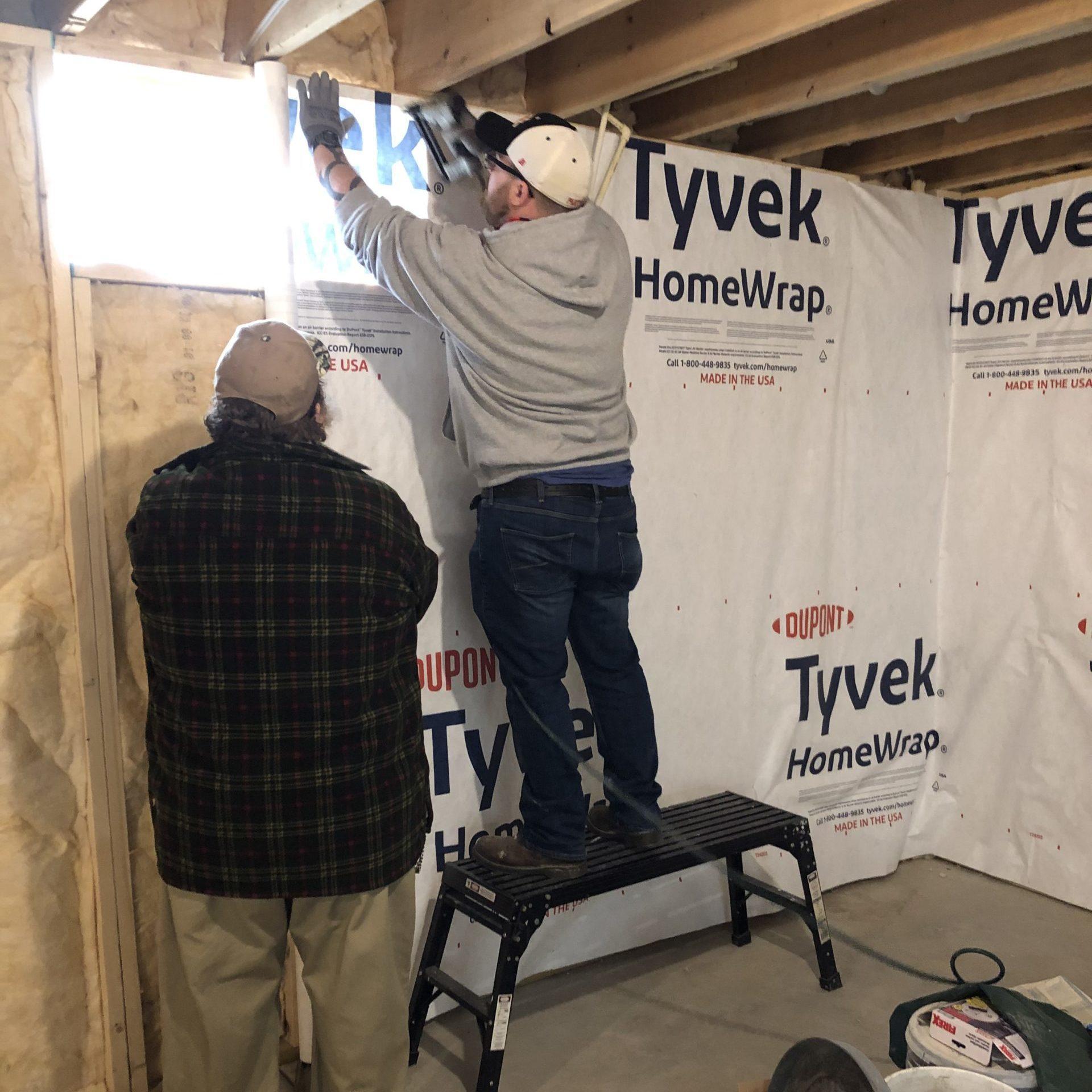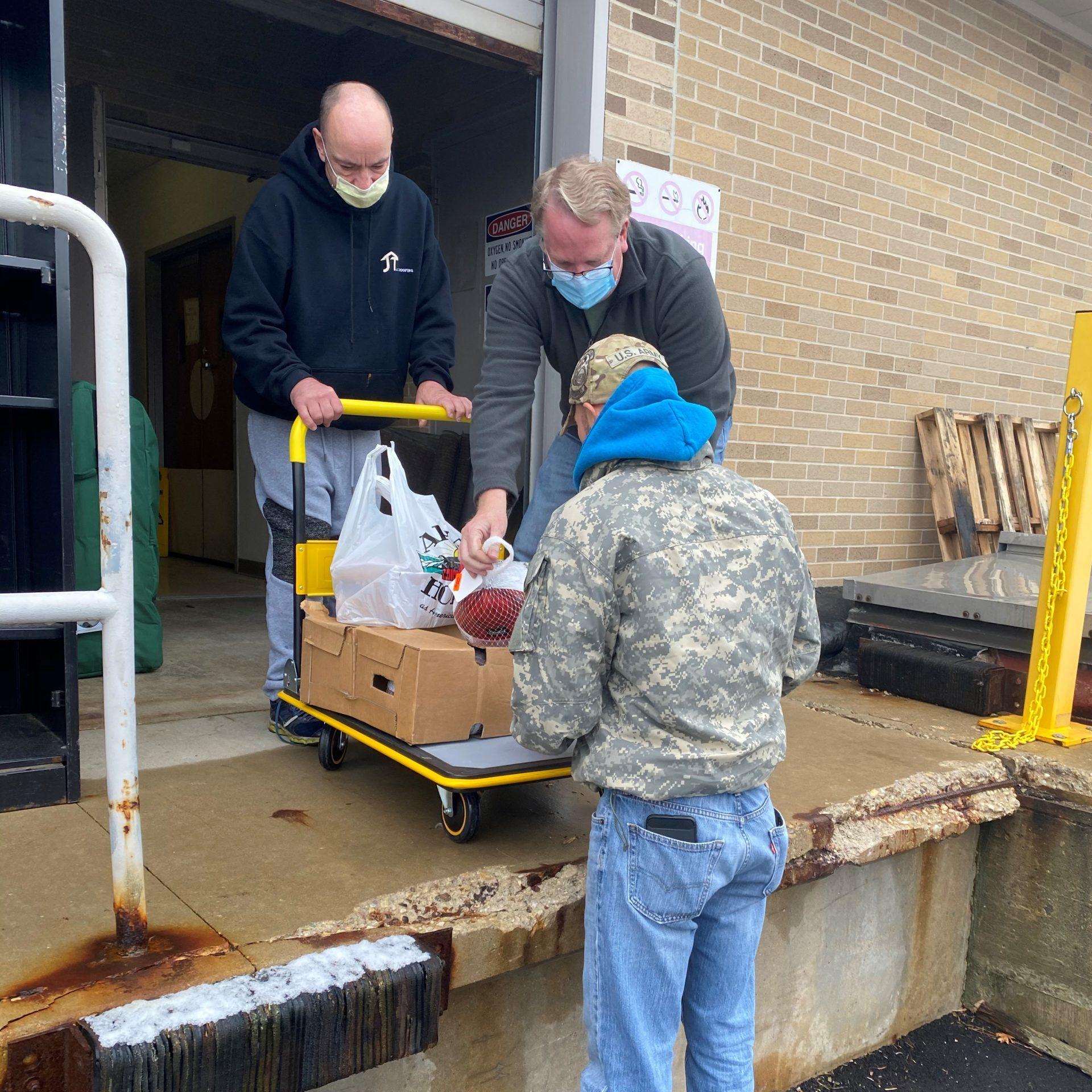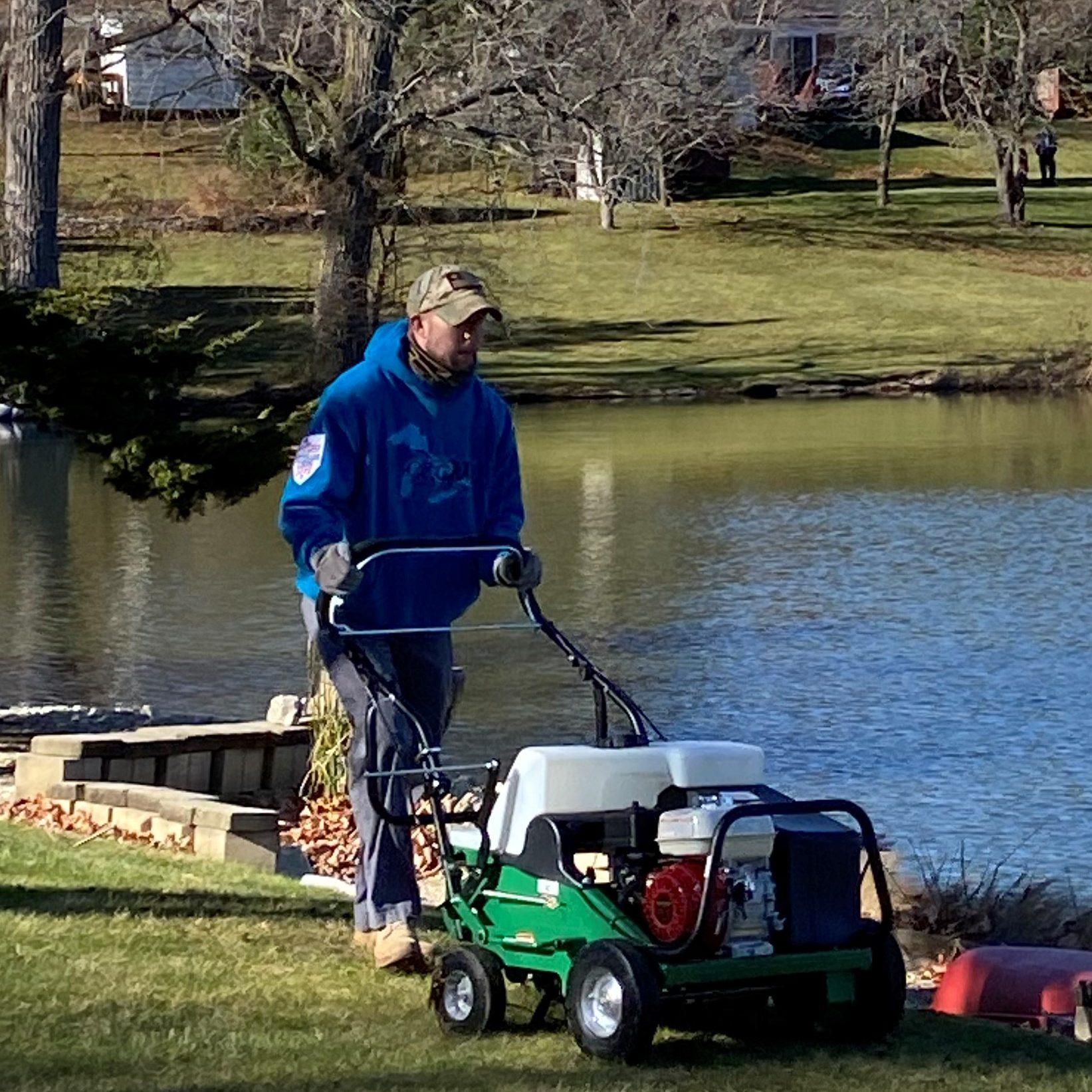It can be challenging to make changes in your life, but it’s easier if you have someone by your side.
That mentality is at the heart of the new Veterans Corps program at Great Lakes Community Conservation Corps (GLCCC). After more than a year of research, planning, and fund development, the program officially launched earlier this fall.
The purpose of the Veterans Corps is to provide military veterans, of any age or ability, with assistance and paid job training during their transition into civilian life. The goal is to give each participant a customizable experience, helping them explore career paths, earn certifications, and access any support services they may need.
“This program is for any veteran who’s looking to take that next step and start that new mission, whether that be employment or looking to find that purpose again, or a community to help them navigate through some issues, whatever they may be. We’ll certainly work with them or make sure they get the right help they need,” said Derek Healey, an Army veteran and the GLCCC Veterans Corps Supervisor.
 The Veterans Corps assists Habitat for Humanity with home construction.
The Veterans Corps assists Habitat for Humanity with home construction.
Making a Difference in the Community
The program is structured such that new cohorts of veterans will join quarterly. Each of the 12 weeks in a quarter consist of three to four days of hands-on work experience and one to two days of classroom learning. Each participant will be enrolled in AmeriCorps, which provides a bi-weekly stipend and an education award upon successful completion of the program. During COVID-19, much of the classroom learning has been virtual and self-paced.
Project work for the Corps varies; a main goal is to get veterans into the community, practicing job skills, and doing something meaningful to assist others. For example, GLCCC is partnering with Habitat for Humanity to give participants exposure to construction work. They’re also providing opportunities to learn landscaping and green infrastructure skills, and they’re partnering with another veteran-serving organization to provide training in masonry. Program participants also support other nonprofits and fellow veterans, including helping at local food pantries. In anticipation of the Thanksgiving holiday, the Veterans Corps members delivered food donations to veterans residing in transitional housing at the VA.
A component of the Veterans Corps is AgVets, an additional 12-week-long program supported through a grant from the U.S. Department of Agriculture. Veterans will have the opportunity to receive training and hands-on experience in one of three fields related to agriculture and agribusiness: trucking and mechanical work; conservation and sustainability; and animal, food and plant science. Starting next year, veterans will have the chance to acquire skills while assisting at a nonprofit-owned farm and will have the opportunity to participate in field trips to local agribusiness employers.
“In this program, I would say you are going to get that feeling of purpose back. If that’s what you’ve been looking for and you feel like you’ve been missing something, that’s what I can tell this program is going to bring you. And not only that, but it’s at your pace,” said Matthew Whiting, a Marine Corps veteran and the AgVets Program Coordinator. “We’re going to figure out where you’re at. We’re going to help you not only pursue what you need to get done in your life, but to make a bigger impact in the community as well.”
 Delivering Thanksgiving meals to the veterans transitional housing facility at the VA.
Delivering Thanksgiving meals to the veterans transitional housing facility at the VA.
Squad Approach
Underpinning the Veterans Corps program is a “leave no veteran behind” mentality.
“One thing that really sets us apart is our squad-based approach,” said Jeanne Evans, Veterans Corps Instructor. “It’s really about re-sparking our veterans’ sense of purpose and self-sacrifice.”
As GLCCC staff noted, the Department of Veterans Affairs and other nonprofits offer programs to assist veterans in their transition to civilian life, but there are no other programs in the area that follow the crew-based model of a Corps, providing veterans with a support system. In addition to job skills and certifications, the program offers the opportunity to connect with GLCCC staff who have military experience, as well as case managers who can help them apply for disability benefits or other services offered by nonprofits or the VA.
“They need a ‘battle buddy,’ so to speak,” said Todd Kile, an Air Force veteran and the Veterans Corps Case Manager.
 Veterans Corps green infrastructure training.
Veterans Corps green infrastructure training.
Meeting Veterans Where They Are
The basic requirements to participate in the program is that an individual must be a U.S. military veteran and have a “DD 214” – a military release form that indicates a person did not receive a dishonorable discharge. However, the program also has a Homeless Veterans’ Reintegration Grant from the Department of Labor to specifically provide training and support to military veterans experiencing homelessness or housing insecurity.
So far, the Veterans Corps has two enrollees, with another three in the enrollment process. The Veterans Corps plans to enroll a total of six to eight participants by the end of this year. The goal is to engage six new veterans as a new cohort every quarter, for a total of at least 25 veterans served per year.
“When they finish this program, I hope they have a sense of really starting to take personal ownership of their own lives, of their own futures,” said Derek Healey. “I hope they have that confidence that I think the service brings people. I think you can lose that really quickly. [I hope they] find that purpose that you had from the military service, to remember what that felt like, to wear the uniform, to accomplish tasks, to do the missions. We hope that instills in them back home here in their personal lives [and they can] continue to have that inner-self pride.”
To learn more about the GLCCC Veterans Corps, visit https://greatlakesccc.org/veterans-corps/





































































